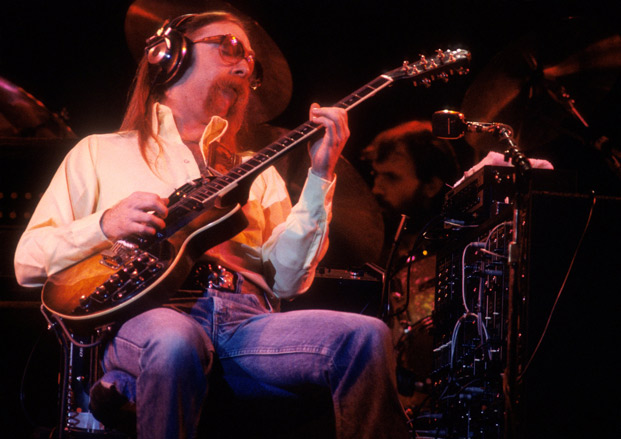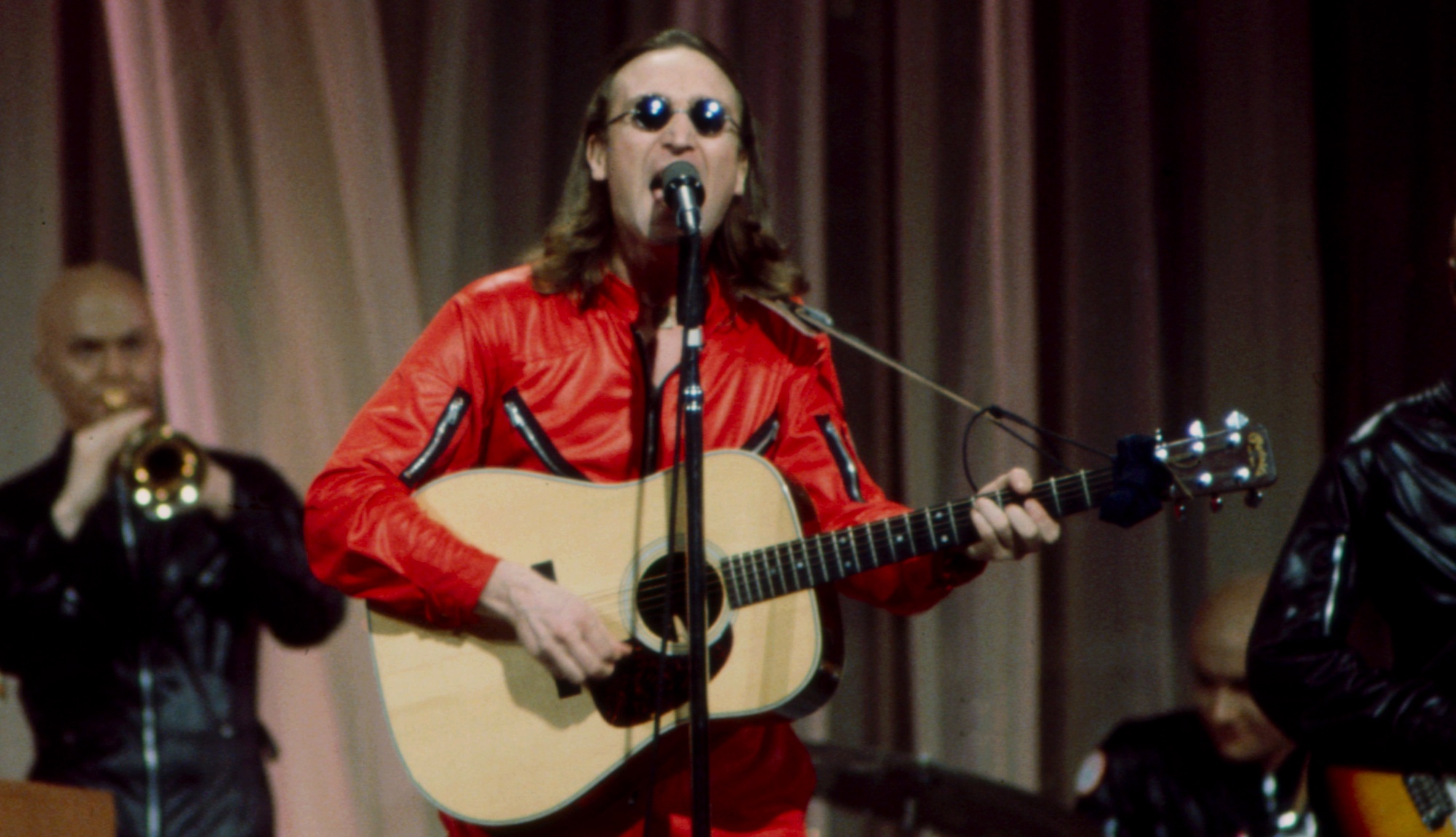The Doobie Brothers' Five Greatest Guitar Moments
All the latest guitar news, interviews, lessons, reviews, deals and more, direct to your inbox!
You are now subscribed
Your newsletter sign-up was successful

You've probably heard about Polk Audio's new “Listen to the Music” contest, which offers bands a trip to Las Vegas to open up for Walk Off the Earth and John Legend. As part of the contest, bands are asked to record a cover of the classic Doobie Brothers track “Listen to the Music” — and create an original video to go with it. You can get all the details about the contest right here. In the meantime, all this talk about the Doobie Brothers has got us thinking about that band's smooth, free-wheeling musicianship, specifically their guitar playing and the many classic six-string parts — from funky riffs and chord progressions to solos and grooves and beyond — they've recorded since their 1971 self-titled debut. So, in the spirit of the contest, we ask you to "Listen to the Music" and check out our guide to the top five Doobie Brothers guitar moments. This list was compiled by a group of Guitar World staffers, including Tech Editor Paul Riario (who, like me, remembers the famous Doobie Brothers episodes of What's Happening!!. I nearly cried when Rerun got busted for bootlegging the concert!) To keep up with the Doobie Brothers, check out their official website and Facebook page."Take Me in Your Arms (Rock Me a Little While)"From Stampede (1975) This Motown-style track features one or two great "outside" guitar solo moments. The solo kicks off at 2:22 in the video below. "That song was like a dream come true for us," said former Doobies guitarist Jeff "Skunk" Baxter, who plays the song's climactic solo. "Every musician I've ever known has at some point wanted to achieve Motown's technically slick soul sound; it's so dynamic. We sat down to try to duplicate it, and to see if our version could emerge as a successful single." In terms of Baxter's approach to soloing, here's what he told Guitar Player in 1980: "It's sort of obtuse. Some people look at music horizontally, in terms of the flow of just a single line. Others look at it vertically, in terms of chords and how much music you can make in one specific spot. I look at it as sort of entering at a 45-degree angle. I really see percussion as a strong part of expression: the guitar is a real percussive instrument, especially when you're moving volumes of air with thousands of watts. My style of playing rhythm and lead at the same time comes from playing a lot of clubs in the New York and Boston scenes."
"China Grove"From The Captain and Me (1973) How many columns and lessons have you read (maybe even on this very website) that discuss the importance of creating "memorable" guitar parts? Tom Johnson's "China Grove" guitar riff — which is propelled by a tasty delay trail — is exactly that, a simple yet catchy piece of guitar playing that sneaks in through your ears and eternally lodges itself in your frontal lobe. Quite honestly, this could be said about several songs on this list. "I had this lick, and I was playing it on an acoustic," said guitarist/vocalist Tom Johnston, who wrote the song. "I went and grabbed the drummer and dragged him downstairs in the basement, where we rehearsed. I went from acoustic to electric, but I don’t think it was real late at night. I think it was probably around 10 or something like that. I said, 'Let’s try this,' and I started playing that lick. Then I figured out the chord structure, the rest of the chords that were in the song. Initially all I had was 'Bow, bow, bomp de bomp de bomp, chica bow bow.' They added the Echoplex when we got in the studio."
"Long Train Runnin'"From The Captain and Me (1973) Once again, behold one of the most recognizable funky guitar riffs — ever. This is one of those "muscle memory" riffs I — like thousands of other guitarists — whip out when checking out a new guitar. Nine times out of 10, it makes the guitar sound great. The riff, with its clever double hammer-on from a full barre chord, is perfect for guitar students and anyone who just wants to sound cool. Honorable mention goes out to the fine bass part, especially during the outro, courtesy of bassist Tiran Porter. It's yet another example of "simple but effective."
"Black Water"From What Were Once Vices Are Now Habits (1974) Yes, the song's a cappella section is cool, and so is its violin part — but have you ever seriously listened to the greasy, swampy acoustic guitar line in this Patrick Simmons-composed masterpiece? All that aside, the song's highlight is probably the solo section, which includes some witty interplay between guitar and violin, followed by a killer bass line that takes listeners by "the hand, hand" and leads them to the aforementioned a cappella part.
"Listen to the Music"From Toulouse Street (1972) This Tom Johnston-penned tune, a longtime staple of adult contemporary and classic rock radio, kicks off with the ideal guitar riff, a breezy, catchy romp that carries the melody throughout the entire track. The song's outro also happens to feature some fine, emotional bends performed high on the neck. By the way, "Listen to the Music" was written in June 1972, the same month and year Polk Audio was founded. We appreciate nice little tie-ins like that!
Yes, we promised you five songs, but since you're reading the deluxe version of this story, here's a bonus track for you! "Takin' It to the Streets"From Takin' It to the Streets (1978) While Michael McDonald's instantly recognizable voice is the undisputed highlight of this longtime radio favorite (which you've probably heard in 4,000 TV commercials), take note of the many subtle guitar "injections" heard throughout the song. They demonstrate fine use of octaves and chords, all of which punctuate the song's piano line.
Damian Fanelli is the online managing editor at Guitar World.
All the latest guitar news, interviews, lessons, reviews, deals and more, direct to your inbox!

Damian is Editor-in-Chief of Guitar World magazine. In past lives, he was GW’s managing editor and online managing editor. He's written liner notes for major-label releases, including Stevie Ray Vaughan's 'The Complete Epic Recordings Collection' (Sony Legacy) and has interviewed everyone from Yngwie Malmsteen to Kevin Bacon (with a few memorable Eric Clapton chats thrown into the mix). Damian, a former member of Brooklyn's The Gas House Gorillas, was the sole guitarist in Mister Neutron, a trio that toured the U.S. and released three albums. He now plays in two NYC-area bands.
